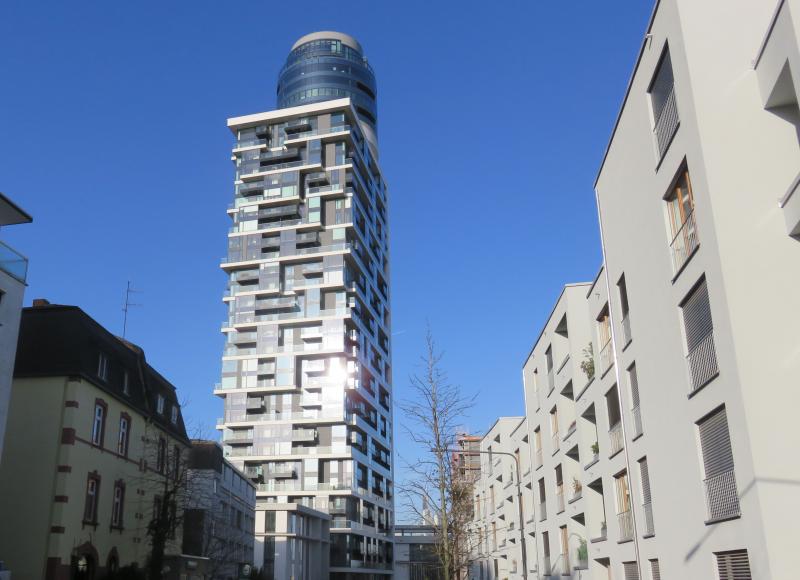Hotels: Consolidation of a Booming Industry
Hotels: Consolidation of a Booming Industry

Once again, we calculated the market volume of investable hotels with Union Investment. This has been growing for twelve years, reaching an all-time high in 2019. This is over for the time being, forecasts from 2020 onwards are hardly possible. Provided there’s no second wave of the virus, then at least the holiday hotel market might hope for a reasonably satisfactory second half of the year.
With coronavirus now dominating the headlines, it’s easy to forget that tourism has been one of the fastest-growing industries over the past 12 years. 2019 was an outstanding year, with nearly half a billion overnight stays in Germany. Up to and including last year, city hotels benefited significantly from trade show and conference business. On top of that, the holiday hotel sector recorded an unprecedented level of domestic demand in 2019.
The investable hotel market in Germany has grown to EUR 61.1 billion over the last 12 years. Even during the financial crisis of 2008/2009 the market expanded slightly overall. The latest calculations show that the investable hotel market in Germany increased in value by around 6.3 per cent compared to 2018 (EUR 57.5 billion).
265.000 Euro for a five-star room
The value of a hotel room in Germany is now around EUR 150,800, which is approximately EUR 5,600 more than in 2018. Luxury hotels achieve an average value per room of around EUR 265,000, while budget/economy hotels come in at approximately EUR 109,000.
Over the entire period covered by the survey from 2007 to 2019, the economy and midscale segments recorded the highest gains in percentage terms. Of the investable room market in Germany, approximately 19 per cent can be attributed to the economy segment and some 45 per cent to the midscale segment.
As in previous years, growth in 2019 (prior year: +9.5 per cent) was due to sustained strong new- build activity in the hotel sector (= quantity effect) and increasing asset values (= performance effect), reflecting the excellent tourism and property market environment in Germany in 2019.
The performance of hotels in cities and holiday areas in Germany was correspondingly strong in 2019. Of the 81 German cities with more than 100,000 inhabitants, 14 recorded over two million overnight stays. This explains why many new hotels, hostels and serviced apartments were built in these locations, as well as elsewhere in Germany. According to the findings of recent studies, hotel development projects in Class A cities in Germany have more than trebled within ten years. In Frankfurt alone, the number of hotel beds increased by nearly ten per cent inside a year.
Given this extensive new build activity, we have now identified an investable universe of around 405,000 guest rooms, which are split across cities and holiday destinations throughout Germany. Almost a quarter of these rooms are in cities with fewer than 100,000 inhabitants.
The investable range of hotel properties comprises traditional business hotels and holiday and apartment hotels, as well as various mixed-use concepts featuring co-working and co-living components. The performance of the operator is hugely important for investors, particularly in terms of identifying redundant organisational structures, which has led to the branded hotel segment capturing a substantial share of the offering and thus of the hotel market in Germany. In 2019, the branded hotel segment share increased from 50.4 to 52.1 per cent, measured by the total stock of rooms in hotels (including bed-and-breakfast hotels) in Germany.
Corona slows down growth
As welcome as this further increase in value in the hotel sector is for property holders, we are naturally aware that the 2019 market volume figures are unlikely to increase much over the next one to two years due to the current situation.
The coronavirus pandemic has brought market growth to a halt for the time being. The impact to date has been much greater than that experienced during the financial crisis, but is not due to economic factors. All existing properties are reporting major shortfalls in revenue due to the lockdown and many development projects have been postponed for now. It’s too early to predict the size of the market for 2020. That will partly depend on how quickly the economy recovers and how soon trade show and events business picks up again. Provided there’s no second wave of the virus, then at least the holiday hotel market might hope for a reasonably satisfactory second half of the year.
Note: The Union Investment and bulwiengesa market value model is based on data from companies, official statistics and hotel associations. It enables a comparative analysis of the institutional hotel market for the years 2007 to 2019. You can find the detailed press release on the website of Union Investment (in German).
Contact person: Dierk Freitag, Head of Division Hotel and Leisure Real Estate, freitag [at] bulwiengesa.de





